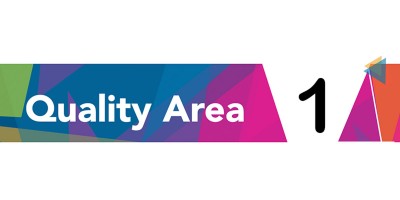The aim of Quality Area 1 is to ensure that the educational programs and practices of educators are child-centred, stimulating and maximise opportunities for enhancing and extending each child’s learning and development. In the school-age care context, the aim of this Quality Area is to see that the program nurtures the development of life skills and complements children’s experiences, opportunities and relationships at school, at home and in the community. The following article provides FDC Compliance Responsibilities Of QA1, Documentation Of Assessment, How Compliance Is Monitored, Consequences For Non-Compliance and more.
Family day care educators are early childhood education and care professionals, engaged by or registered with an approved provider to provide education and care to children in a residence or approved venue. Providers and educators of family daycare or FDC have certain legislative responsibilities to provide high-quality education and care across the family daycare sector. These responsibilities are termed Compliance Responsibilities and operate under the aegis of the National Quality Framework.
Understand the Basics
The National Quality Framework (NQF) provides a national approach to regulation, assessment and quality improvement for early childhood education and care and outside school hours care services across Australia. The core of the NQF is the National law which sets a national standard for children’s education and cares across Australia. National Law is supported by a set of regulations, the National Regulations, which provide detail on a range of operational requirements for an education and care service. The NQS includes seven quality areas that are important outcomes for children and FDC providers and educators are required to comply with the provisions in each of these quality areas
Compliance Responsibilities
The family day care educator is legally responsible for compliance with certain components of the National Law – known as Section – as well as National Regulations – known as Regulation.
Compliance responsibilities for Quality Area 1 relate to the Record of child assessments or evaluations for delivery of educational programs and are covered by Section 175, Regulation 178.
To comply with this section and regulation, documentation of assessments or evaluations for each child being educated and cared for at the residence or venue should be available for inspection at the residence or venue (Section 175). The FDC educator must ensure that documentation is accurate and is provided to the child’s parents on request (Regulation 178).
What Is Documentation Of Assessment
Every service needs to have in place a system for assessing each child’s learning in an ongoing way. Though the NQS or approved learning frameworks do not mandate any particular format to collect this information, all effective ways of assessing children’s learning share certain characteristics, including the following:
- each child’s learning is assessed
- as educators become aware of information worth recording, they record it. This means that there may be several notes about a child one day and then no notes for a few days. This system of recording what is significant is better than having a set time for recording something about each child
- records may take the form of ‘snippets’ or informal notes
- at designated intervals, for example, every two months, educators record a summary or synthesis of the child’s learning and development
- recorded information links to the five learning outcomes in the Early Years Learning Framework and other approved learning frameworks if any
- educators critically reflect on the meaning and implications of what they learn about children and how the program can support each child’s learning and development most effectively.
What Does Documentation Of Assessment Include
For children who are preschool age and under, this documentation must include:
- assessments of the child’s developmental needs, interests, experiences and participation in the educational program
- assessment of the child’s progress against the learning outcomes of the educational program.
For children who are over preschool age, this documentation should focus on evaluations of the child’s wellbeing, development and learning.
In preparing the documentation consideration should also be given to the period a child is educated and cared for by the service - for example, full-time or part-time attendance. Other considerations include how the documentation will be used by the educators and ensuring the documents are easily understandable by the parents of the child.
Services in the Northern Territory, NSW and Queensland are not required to keep documentation of individual evaluations of school-age children. To meet requirements the approved provider must ensure that, for the purposes of the educational program for a child over preschool age, evidence about the development of the program is documented
What Other Information Should Be Made Available To Parents
According to Element 1.3.3 of Quality Area 1, Information about the educational program must be displayed at the FDC educator’s residence or approved venue. The following information must be given to a child’s parents when requested:
- information about the content and operation of the educational program so far as it relates to their child
- information about their child’s participation in the program
- a copy of assessments or evaluations about their child.
How Is Compliance Monitored
Monitoring of compliance by FDCs happens through unannounced compliance visits, assessment and rating visits and the investigation of serious incidents and complaints. Compliance visits are generally unannounced and assess service compliance against the National Law and National Regulations. However, when the state education department is notified of a serious incident there may be an investigation by the FDC. An investigation may also happen when there is a complaint of an allegation:
- that the safety, health or wellbeing of a child or children being educated and cared for by the service may have been compromised
- of a contravention of the National Law or National Regulations.
An investigation may include all or any of the following:
- an investigation compliance visit
- collection of relevant documentary evidence
- taking statements from witnesses, parents, and other relevant persons
- interview of the approved provider, educator and any other person(s) directly involved in the alleged incident
- collection of evidence from other relevant sources.
Consequences For Non-compliance
Where the regulator identifies issues of non-compliance, family day care services may face a range of potential regulatory action and penalties including a direction by the regulator requiring compliance, an infringement notice including a financial penalty, and for more serious breaches – prosecution. Here are the consequences in detail:
- If the FDC educator does not comply with keeping and providing records of child assessments or evaluations for delivery of the educational program, then they are liable to prosecution in a court or tribunal.
- The FDC educator may be liable for a penalty of $4000 if the documentation is not kept available for inspection (Section 175)
- The FDC educator may be liable to a penalty of $2000 if documentation is not accurate (Regulation 178)
- The FDC educator may be liable to a penalty of $2000 penalty if documentation is not made available to the relevant child’s parent on request (Regulation 178)
- The FDC educator may be issued an infringement notice. An infringement notice is a notice issued by a regulatory agency setting out the particulars of an alleged contravention of an offence or civil penalty provision. A person who is given an infringement notice can choose to pay the amount specified in the notice as an alternative to court proceedings.
- Related to the infringement notice, the FDC educator may incur a fine of $200 if the record is not accurate
- Related to the infringement notice, the FDC educator may incur a fine of $200 if the record is not made available to the child’s parent on request
In addition to regulatory authorities being able to prosecute or issue an infringement notice due to confirmed breaches of the National Law and/or National Regulations, regulatory authorities also have the power to give:
- Compliance notices under section 177 of the National Law in response to confirmed breaches of provisions of the National Law and/or National Regulations; a compliance notice is a direction from the Department to the approved provider to take certain steps within a specified period to comply with the provision contained in the National Law and National Regulations. It is an offence under National Law to fail to comply with a compliance notice.
- Compliance directions under section 178 of the National Law in response to confirmed breaches of the National Regulations. A compliance direction is a written enforcement notice that directs an approved provider to take certain steps to comply with a provision of the National Regulations, within a specified timeframe.
In extreme cases of identified non-compliance, the regulatory authority may also decide that an approved provider is no longer a suitable person to operate a child care service and may suspend or cancel a provider's approval. In order to prevent such an eventuality, it is important that FDC educators ensure compliance with all sections and regulations of the NQF.
Further Reading
How To Achieve Quality Area 1 - The following is a list of outcomes under each element within QA1, that can help services identify if they are achieving Quality Area 1. It also includes documentation to support each element. This list can be used as a guide for Self-Assessment purposes and the development of the Quality Improvement Plan.
Exceeding Guidance For Quality Area 1 - The following guidance is provided to assist services and assessors to consider if practise demonstrates the Exceeding themes at the level required for a rating of Exceeding NQS.
Reflection Questions For Quality Area 1 - The following questions are to be used as a guide for reflecting on each of the standards within Quality Area 1.
Documentation Services Require To Support Quality Area 1 - The following lists the documentation services that are required to have in order to support the achievement of QA1 in each element.
Supporting Doc QA1 - The Supporting Doc QA1 template provides a checklist of documentation that is required in order to achieve Quality Area 1 -Educational Program and Practice.
References:
- FDC Compliance Guide, ACECQA
- Guide For FDC, Department Of Education
- Guide To The NQF, ACECQA
- QA1 Education Program and Practice, ACECQA







 As an Educator in Australia, your pay rate falls under the Children’s Services Award 2010. This award states the minimum amount that an employer can
As an Educator in Australia, your pay rate falls under the Children’s Services Award 2010. This award states the minimum amount that an employer can When working as a qualified Early Childhood Teacher (with a university degree) within a service, your rate of pay will come from the Educational Services
When working as a qualified Early Childhood Teacher (with a university degree) within a service, your rate of pay will come from the Educational Services When working as a Diploma Qualified Educator your pay rate is from the Children's Services Award 2010. This Award states your minimum rate of pay
When working as a Diploma Qualified Educator your pay rate is from the Children's Services Award 2010. This Award states your minimum rate of pay When working as a Cert 3 Qualified Educator, your pay rate is from the Children's Services Award 2010. This Award states your minimum rate of
When working as a Cert 3 Qualified Educator, your pay rate is from the Children's Services Award 2010. This Award states your minimum rate of Educational Leaders play a crucial role in their early childhood service by ensuring that the educational program aligns with best practices and supports the holistic
Educational Leaders play a crucial role in their early childhood service by ensuring that the educational program aligns with best practices and supports the holistic In early childhood education and care, ratios are more than a technicality—they are a frontline safeguard. Every child deserves responsive supervision, emotional connection, and developmental
In early childhood education and care, ratios are more than a technicality—they are a frontline safeguard. Every child deserves responsive supervision, emotional connection, and developmental With the new national child safety reforms kicking in on 1 September 2025, early childhood services like yours have a real opportunity to lead the
With the new national child safety reforms kicking in on 1 September 2025, early childhood services like yours have a real opportunity to lead the Here’s a comprehensive Mobile Phone and Smart Watch Policy tailored for early childhood education and care (ECEC) services in Australia, aligned with the latest 2025
Here’s a comprehensive Mobile Phone and Smart Watch Policy tailored for early childhood education and care (ECEC) services in Australia, aligned with the latest 2025 The Sea of Fish Challenge is a national initiative that invites children, educators, families, and communities to create and display fish artworks as a symbol
The Sea of Fish Challenge is a national initiative that invites children, educators, families, and communities to create and display fish artworks as a symbol Across the early childhood education and care sector, educators are sounding the alarm: current staffing ratios are insufficient to deliver safe, meaningful, and developmentally appropriate
Across the early childhood education and care sector, educators are sounding the alarm: current staffing ratios are insufficient to deliver safe, meaningful, and developmentally appropriate


